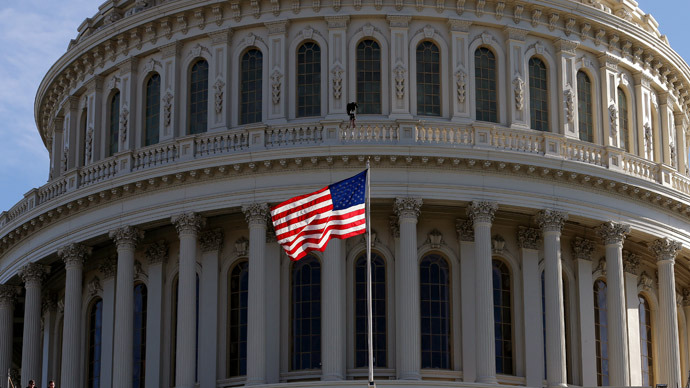'US sequestration could have been avoided'

The highly contentious sequester will hit the US on March 1. Some contend that it is meant to help curb the budget gap - but it could have been avoided if legislators had made timely decisions, Yaroslav Lissovolik from Deutsche Bank Moscow told RT.
As Washington jumps on the austerity bandwagon, the harsh cuts are scheduled to kick in at midnight Friday, with no possibility of a last-minute deal in sight. Defense, education, public transport, social services - all will be affected.
"The main concern in the markets now is that if the sequestration happens, it may be more disorderly than a planned and ordered procedure would have been. So sequestration may have negative implications for growth, and generally I think the markets' perception is also likely to be more negative under such a scenario, with more serious implications for the US economy than if a joint agreement was reached on a reduction in fiscal spending and the reformulation of the tax burden," Lissovolik told RT Business.
By the end of the fiscal year on September 30, the sequester is
going to cut $85 billion from the US budget, with cuts divided
equally between defense and non-defense.
Although the sequester is a proper instrument, to some degree, for dealing with the deficit problem and the problem of growing public debt, Lissovolik says the issue is “better addressed through a mix of measures and through a comprehensive compromise that deals with both the tax side of the equation and expenditure.”
“But again, there is also the issue of market confidence -
and for the markets, there is a problem that if agreement is so
hard to reach, the problem of political stalemate may resurface
later on," he added.
Speaking about the implications of the sequester for European
and Russian markets, Lissovolik was not particularly
optimistic.

The statements, views and opinions expressed in this column are solely those of the author and do not necessarily represent those of RT.












